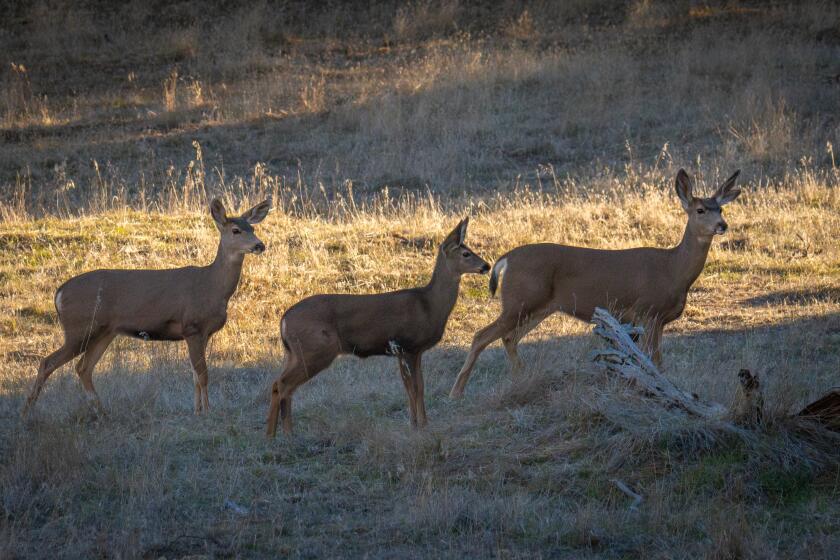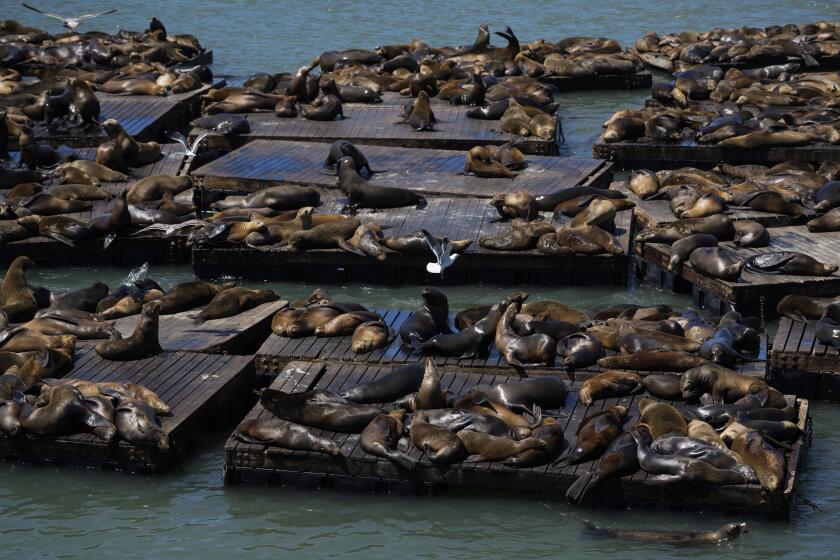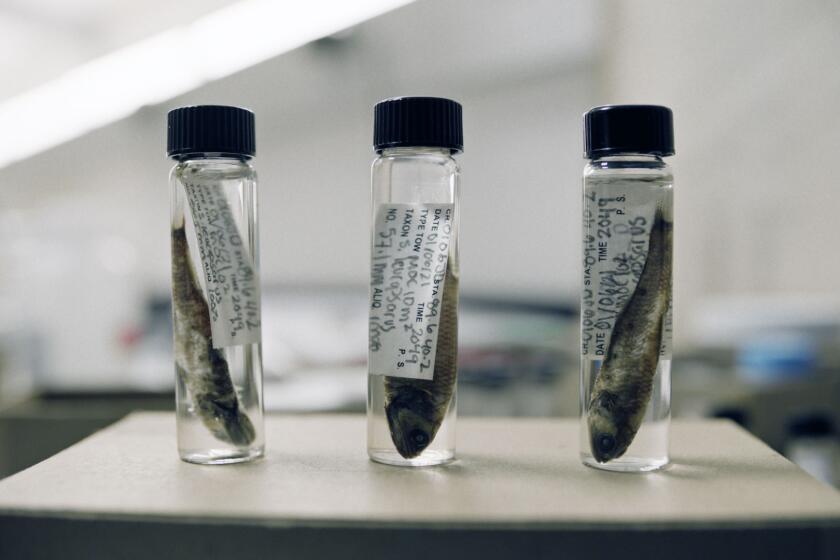All Not Whale in Hunting Dispute
For the better part of this century, the gray whale’s lumbering migration from Alaska to Mexico has been a veritable timetable of the Pacific, unimpeded save for detours around a few whale-watching boats and an occasional wrong turn into San Francisco Bay.
Safe from the whalers who hunted it nearly to extinction, the gray whale has staged a remarkable comeback, with a herd of 21,000 now plying the coasts of California, Oregon, Washington and Canada twice each year.
With that in mind, a small Native American tribe in northwest Washington has won permission to launch the first whaling expedition in the Lower 48 in 70 years. In October, members of the Makah tribe, historic whalers of the Pacific Northwest, will launch a stream of canoes out of Neah Bay, prepared to hunt and kill the first of up to five gray whales a year.
Authorized under a compromise agreement with the International Whaling Commission, which administers the international ban on commercial whaling in effect since 1987, the Makah whale hunt looms as one of the biggest environmental conflicts of the coming decade.
But anti-whaling groups around the world have pledged to block the hunt, which they say could lead to a major increase in global whaling and threaten humankind’s harmonious relationship with the mammoth sea beasts that traverse one of the world’s most populated shorelines.
This weekend, up to 20,000 people are expected to descend on the tiny community of Neah Bay for the Makah’s annual cultural celebration, some of them protesters aiming to discourage the hunt.
Fearing what could happen with that many people on a remote location, Gov. Gary Locke has called in the National Guard to maintain a standby presence. The Clallam County sheriff is dispatching half his team of 20 deputies.
“There are groups that have said that they will be on site during the festival. Whether that will inflame issues or not, we don’t know,” Sheriff Joe Hawe said.
Leading opponents of the hunt, including the Sea Shepherd Society of Marina del Rey, the Progressive Animal Welfare Society and the Humane Society of the United States, say they plan no demonstrations now but will definitely have a presence when the hunt begins in October.
Sea Shepherd is amassing a flotilla of boats, a helicopter and a submarine here, preparing to deploy them between the whales and the tribe’s canoes and to videotape the hunt as it progresses. And the organization plans to paint its submarine to resemble a killer whale and broadcast into the water the sounds of killer whales attacking gray whales--hoping that will scare off the herd before it ever reaches the waters near Neah Bay.
The Makah sought to conduct the hunt purely by traditional means, with harpoons. But for humanitarian reasons, the whaling commission insisted that the whale, once harpooned, must be finished off quickly with an automatic rifle.
The Coast Guard has imposed a 500-foot restriction zone around the Makah canoes, apparently fearful that the 50-caliber machine guns the tribesmen will use could endanger nearby protesters. But conservation groups complain the limit will prevent them from filming the death of the whale.
Sea Shepherd leader Paul Watson said the group is concerned not only about the five whales a year to be taken by the Makah, but also by the fact that the hunt has been authorized as a means of reviving the tribe’s cultural heritage. Previous exemptions for aboriginal whaling were granted solely for purposes of subsistence, he said.
“That will mean that Japan and Norway, Iceland and Russia will then go to the [commission] and claim cultural necessity,” Watson said. “I’m not sending two ships and a submarine here to stop five whales from an aboriginal hunt. My opposition is Oslo, Tokyo and Reykjavik.”
The Makah’s petition to resume whaling was backed by the U.S. government, based on an 1865 treaty under which the tribe ceded thousands of acres in exchange for a small reservation and the right to continue hunting whales, a tribal tradition over thousands of years.
Since the whales virtually disappeared in the 1920s, the tribe has languished, supported primarily by logging and a dwindling salmon fishery. Tribal leaders believe the hunt will give the tribe a renewed sense of purpose and pride, in addition to feeding the tribe’s 2,300 members, 1,400 of whom still live on the reservation.
“There are whaling families . . . that have been passing on dances and songs and rituals that help men and women become sound and self-assured, but those things didn’t have the edge as time went on,” said Keith Johnson, president of the Makah Whaling Commission.
“My father wasn’t on a hunt. But he knew the value of this training, adapted to cleansing one’s spirit, focusing one’s mind and having direction,” Johnson said. “It’s a link to the past, and it validates us, who we are as a people and a culture.”
Johnson said he expects that once people understand the purpose and manner of the hunt, controversy will disappear. “We want people to know we’re not this horrible, barbaric people,” he said. “The first whale will be the toughest.”
More to Read
Start your day right
Sign up for Essential California for news, features and recommendations from the L.A. Times and beyond in your inbox six days a week.
You may occasionally receive promotional content from the Los Angeles Times.






